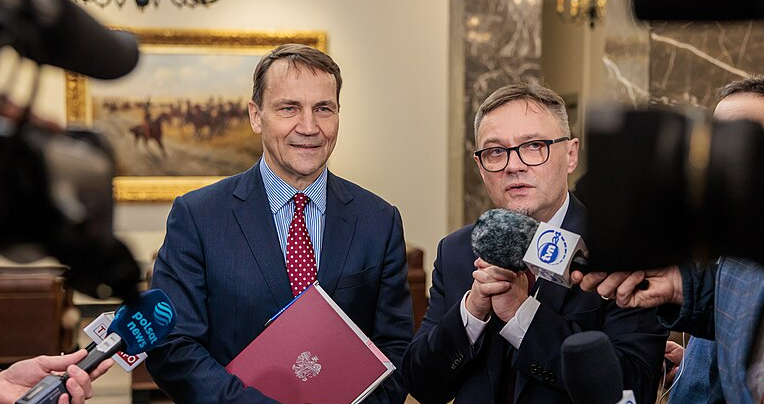Poland is calling for Russia to explain an incident where a Russian cruise missile entered Polish airspace on Sunday morning before turning back over Ukraine.
Others are reading now
The Polish Ministry of Foreign Affairs has voiced a stern request for the Russian Federation to cease its air assaults on Ukraine’s population and territory, end the war, and focus on addressing its own internal issues.
“First and foremost, we ask the Russian Federation to halt its terror air attacks against the population and territory of Ukraine, to stop the war, and concentrate on the country’s internal problems,” said Pawel Wronski, spokesperson for the ministry, in a statement.
According to the Polish military, the missile penetrated two kilometers into Polish airspace before reversing course into Ukrainian airspace, prompting Poland and several allied countries to scramble military jets in response.
Wladyslaw Kosiniak-Kamysz, Poland’s Defense Minister, stated that a widespread Russian attack on Ukraine that morning led Poland to activate “all air defense systems” prior to the airspace violation. He further remarked that the Russian missile would have been shot down had there been any indication it was targeting Poland.
Also read
A similar incident occurred on December 29 last year when a Russian missile entered Polish airspace, remaining there for several minutes.
In November 2022, two individuals were killed when an air defense missile landed in the Polish village of Przewodow, near the Ukraine border. However, it was later identified as a Ukrainian missile that had mistakenly ended up in Poland, not a Russian one.
Before it was clarified to be a Ukrainian missile, concerns within NATO arose about the defense alliance being drawn into the conflict between Russia and Ukraine. Under NATO’s Article 5, an attack on one member country is considered an attack on the entire alliance, potentially activating the collective defense clause.


